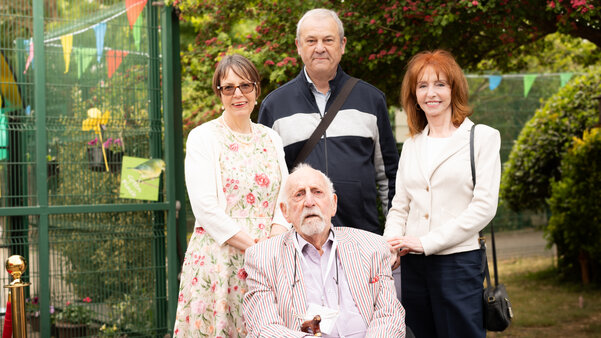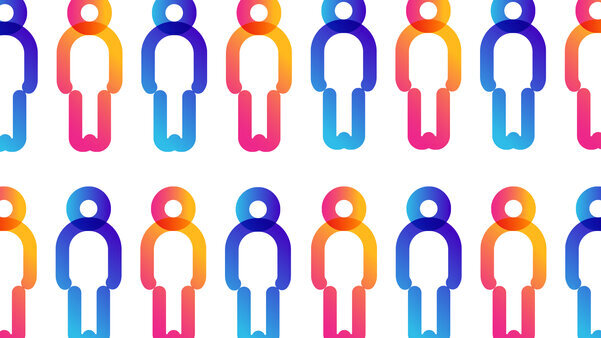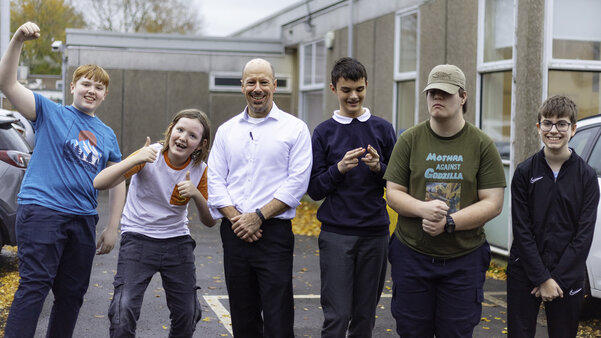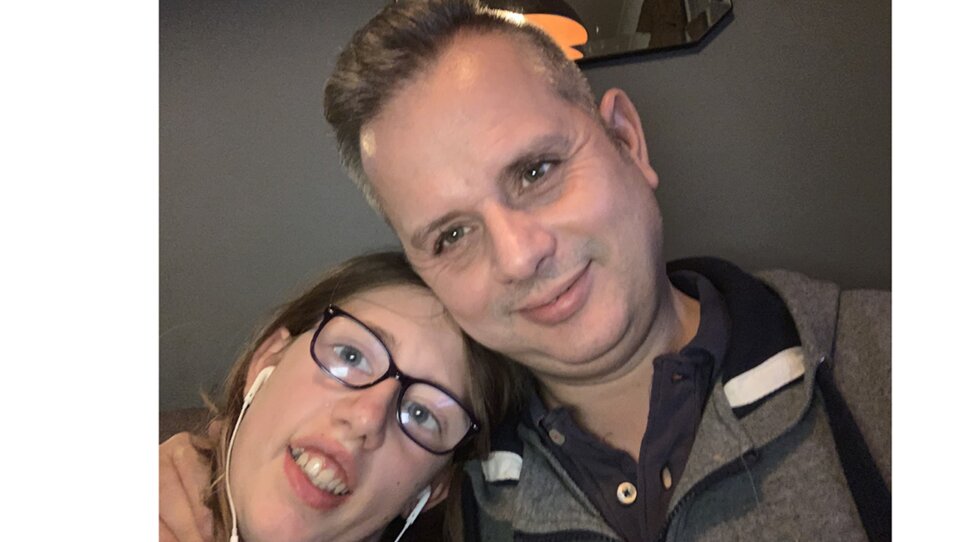
"I have to be careful I don't assume I understand all autistic people and their challenges, just because I have an autistic daughter."
Peter Watt
- on his role as Managing Director of National Programmes at our charity
Stories from the Spectrum: Peter Watt
We caught up with Peter Watt, who recently joined our charity as Managing Director of National Programmes.
Peter tells us about his own fight for support for his autistic daughter, Ruby, and how this drives his hopes and aspirations for our charity, as we prepare to mark our 60th anniversary.
As Managing Director of National Programmes, Peter will oversee our vital work equipping autistic people and families with information and advice, campaigning for better rights support, as well as our fundraising, training, consultancy and conferences.
Welcome to our charity. What motivated you to join the National Autistic Society?
Thank you. I am very happy to be here, especially as we prepare to mark the charity’s 60th anniversary and take stock of all that’s been achieved – and how far we still have to go to get the society that autistic people and families need and expect.
I’m excited about getting to know the charity, and finding out more about what we do – I thought I did know, but there is so much more than I realised. I am really struck by the impact of our volunteers. The peer support they offer to autistic people - including support with going out, day trips, and holidays – is a lifeline.
I have two reasons for wanting to join the National Autistic Society – one personal and one professional.
I have a teenage daughter, Ruby, who is autistic. She received her diagnosis when she was seven-years-old and her mother and I attended an EarlyBird Plus course from the National Autistic Society. The course really helped us understand Ruby’s autism better and made us better parents. It made me realise Ruby had been speaking one language for the past seven years and we, her parents, a different one. Over the years, we have often used the National Autistic Society website for advice and information.
"The EarlyBird Plus course made me realise Ruby had been speaking one language for the past seven years and we, her parents, a different one."

My professional reason for joining the National Autistic Society is that I admire the work the charity has done over the past 60 years.
-
- setting up over 100 branches across the UK
- creating the most visited disability website in the UK
- offering pioneering support and services at a time when there was so little awareness and understanding of autistic people
- making a positive difference to the lives of thousands of autistic people and their families.
-
Holding the Government to account on key issues, including:- addressing the scandal in mental health hospitals
- publishing an ambitious autism strategy
- fighting for exemptions during the pandemic.
- addressing the scandal in mental health hospitals
Despite all the current challenges, it feels like an exciting time to join and help the charity provide even better services for autistic people and their families and to make sure we are campaigning for societal change. This includes holding governments and local authorities to account and making sure they deliver on their promises.
Can you tell us more about Ruby?
Ruby is a fantastic young woman. She is very verbal and has lots of interests. In the future, she would like to work with children. She attended a very supportive mainstream school until she was 10-years-old and is now at a special school for autistic students which she loves.
I think Ruby’s early diagnosis and support from both schools has really helped her understand her autism. She knows she can sometimes feel overwhelmed and is learning to recognise more and more when she needs to take time out to make sure things don’t get too much for her.
Have you managed to get support when you needed it?
We were very lucky to get support. We are so grateful that Ruby’s schools have been very helpful because we know many autistic children are missing out on this sort of support. Ruby’s mum has also fought very hard to get Ruby as much support as possible.
Tell us about your career before the National Autistic Society.
I started off as a nurse, specialising in helping older people, which I found very rewarding. I was inspired to become a nurse by my dad who was a nurse in the 1960s – something that was quite unusual for a man back then.
I then got into politics, joining the Labour Party and serving as the General Secretary from 2006-2007.
I moved into the charity sector when I became the CEO of Counsel and Care, a charity for older people. I moved on to work as a Director at the NSPCC and then worked for the London Borough of Hammersmith & Fulham running some of its children’s services.
What do you like to do when you’re not working?
I am a massive sports fan. I love watching football and cricket. I support the greatest football team in the world…Liverpool!
I also swim and run when I can and I am a big reader and listen to audiobooks. Ruby and I also like to take part in well-planned activities such as playing badminton and going for fish and chips at the pub. Today, we are off to a local maze.
How will your personal experience of autism inform your work at the National Autistic Society?
I have to be careful I don’t assume I understand all autistic people and their challenges just because I have an autistic daughter. But I have had our family’s experience, so I feel I can relate to many of the stories I have heard.
"I have to be careful I don’t assume I understand all autistic people and their challenges just because I have an autistic daughter."

I still remember times when Ruby was younger and the negative reactions we had from some people when she was distressed. For instance, the man who loudly told those around him that we should try and control our child while queueing for a ride at a theme park comes to mind. I was angry and embarrassed – and angry at being embarrassed.
I want to help shape a society that removes the barriers for autistic people and brings in positive adjustments in all aspects of life. I want to be pushing national governments and local authorities to deliver on their promises and provide the best support possible for autistic people and their families. It is also important we keep up with the rapid change we see in all aspects of society and that we as an organisation provide the best services, support and advice.
What’s the biggest change you want to see for autistic people?
I hope that more and more professional bodies, organisations and employers will recognise the potential of autistic people and their responsibility to remove any barriers they have for autistic children and adults. I want to make sure that we as a charity can help more teachers, social workers, medical professionals and other people who work with autistic children and adults to receive better training on autism.
I want to see governments providing more support for autistic people across the UK.
-
It’s great that the autism strategy in England has more money behind it than any other previous strategy but it won’t bring the changes autistic people need if the Government doesn’t also honour its promise to fix the crisis in social care.
-
We secured a manifesto commitment from the SNP during the recent election for a Commissioner covering autism, but they need the powers and funding to make a difference.
-
From 1 September, Wales will have its first legally binding code of practice on autism, following our Autism Bill campaign – it’s vital people know about it.
-
A seven-year strategy is being developed for Northern Ireland. We sit on the forum which is informing the strategy.
So many good things are happening, but there is still so much to do.
Similar stories
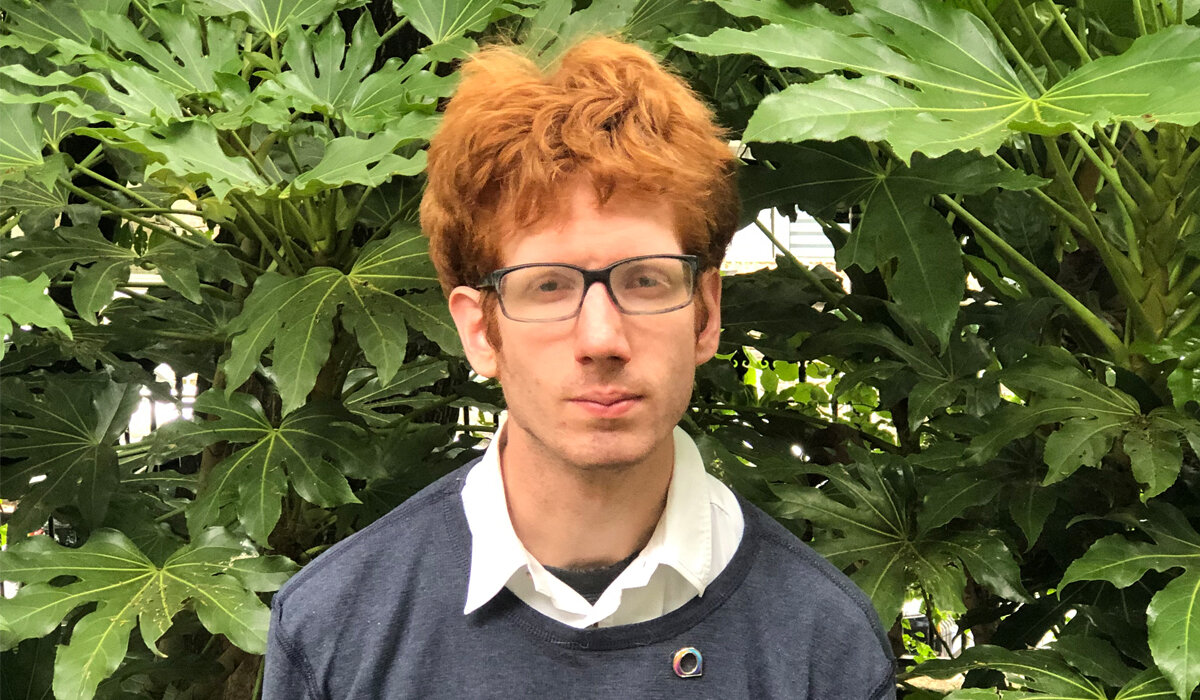
"Being awarded Employee of the Year has been my proudest moment."
Leo Capella
- on winning our 2019 'Employee of Year' award
Read more
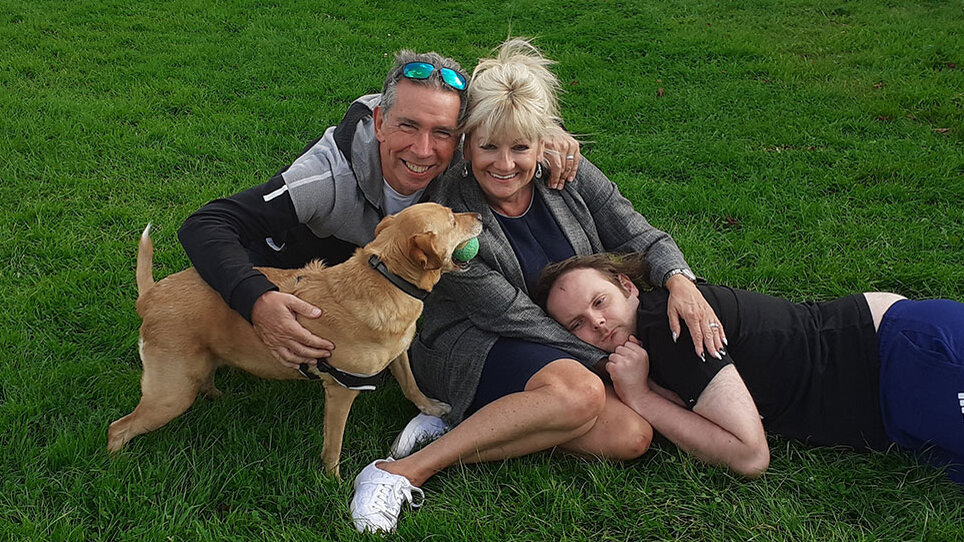
"Our aim was to get Ryan and other autistic people out of hospitals and into the community."
Sharon Clarke
- on mental health hospitals and advocating for her son, Ryan
Read more

The Spectrum magazine
Explore one of the UK's largest collections of autistic art, poetry, and prose. The Spectrum magazine is created by and for autistic people, and is available both online and in print.
Read the SpectrumOur latest news and updates






You are not alone
Join the community
Our online community is a place for autistic people and their families to meet like-minded people and share their experiences.
Join today



